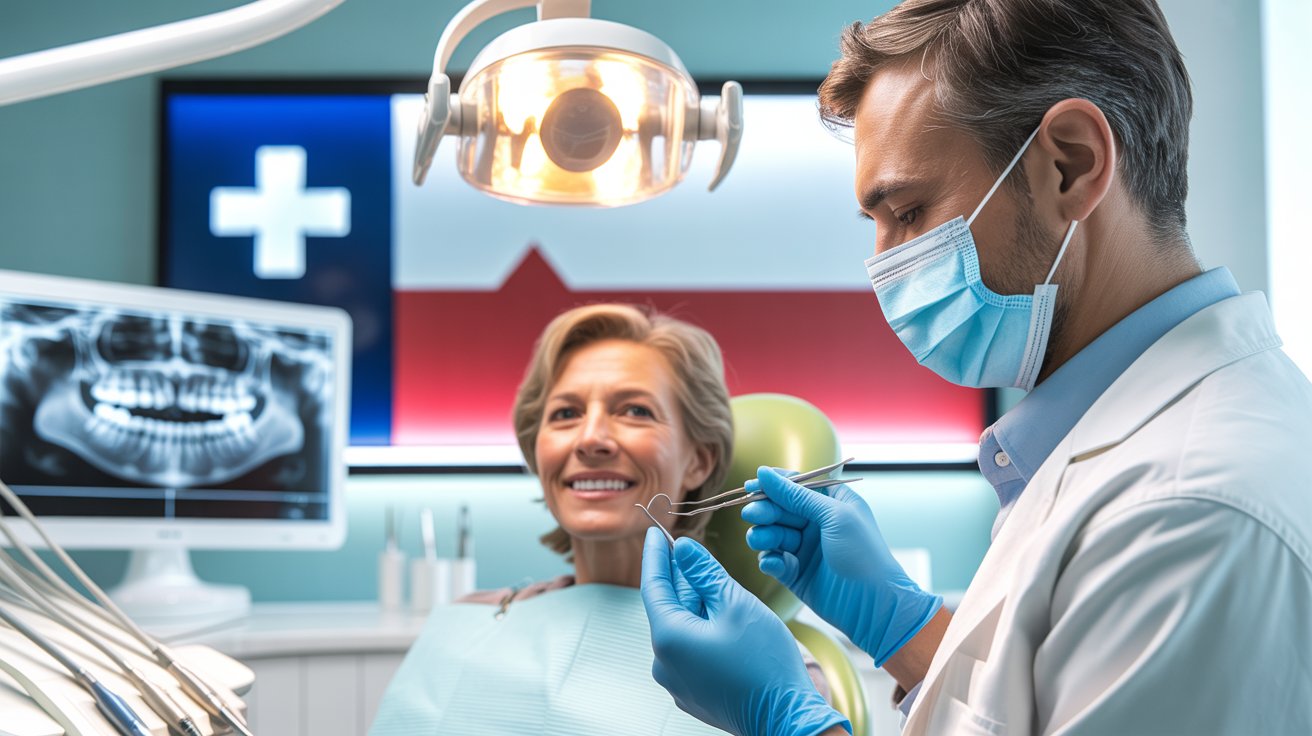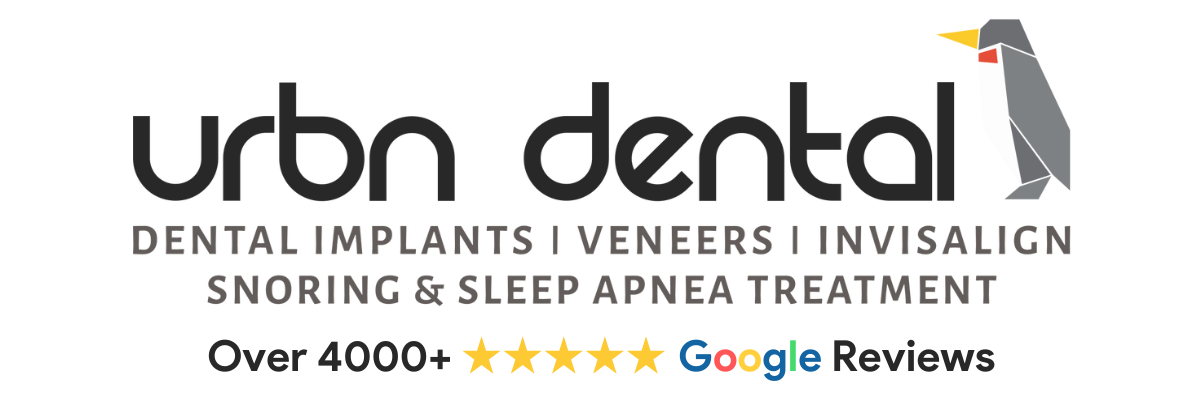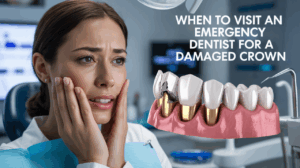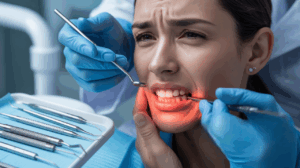
Dental emergencies can be painful, frustrating, and unbearable, whether it’s a sudden toothache, a cracked tooth, or an infection. For patients in Houston, it is crucial to understand what to expect during an emergency tooth extraction. Having this knowledge can make the process more manageable and less stressful. In this blog, we will explore what you need to know before visiting our emergency dentist Houston for a tooth extraction.
When Is Emergency Tooth Extraction Necessary?
Tooth extraction is generally the last solution, but there are several situations where our emergency dental care Houston may recommend removal to prevent further serious complications. During severe tooth decay or infection, damage reaches the root or surrounding bone, and extraction may be necessary to protect oral health and relieve pain.
Other urgent cases include fractured or broken teeth from accidents, impacted wisdom teeth, causing pressure or swelling, and gum diseases that lead to tooth mobility. In these issues, visiting our emergency dentist Houston may help you address these issues efficiently.
Signs You May Need Our Emergency Dentist For Extraction
Here is the list of signs that you may need to visit our emergency dentist Houston:
- Severe tooth pain that won’t go away
- Swelling in the face or gums near the affected tooth
- Dental infection or Abscess
- A lost or broken tooth
- Gum swelling or bleeding
- Wisdom tooth complications
- Trauma or injury to the mouth
If you’re facing any of these issues, schedule your emergency exam now.
What To Expect During An Emergency Tooth Extraction
Here is a general overview of what happens when you visit our tooth extraction Houston TX:
Assessment
The dentist will thoroughly evaluate your mouth. This evaluation includes an X-ray to assess the tooth position and surrounding bone structure.
Anesthesia
Local anesthesia is generally administered to numb the area and ensure patient comfort. For people with dental anxiety, our dentist may offer sedation options, depending on medical history.
Extraction
Our emergency dentist Houston will carefully loosen and remove the tooth by using specialized tools. In more complex cases, such as impacted teeth, surgical extraction may be required.
After-Care Instructions
Gauze is applied to manage bleeding, and patients are given detailed post-procedure care guidelines to promote healing and avoid complications.
Want to speak to a team member before your visit? Call us now for urgent support.
Recovery Tips After A Tooth Extraction Recovery
Recovery from a tooth extraction generally takes a few days, and following your dentist’s instructions is the best way to heal smoothly. Here are some of the general tips that are often recommended:
Pain Management
Prescribed medications and pain relievers can help reduce discomfort. Avoid aspirin or any unprescribed medication, which may increase bleeding.
Control Swelling
Applying an ice pack to the cheek at 10-minute intervals may help minimize swelling within the first 24 hours.
Avoid Certain Foods
Stick to soft foods like yoghurt, mashed potatoes, and smoothies for the first couple of days. Avoid hot, spicy, or crunchy items that can irritate the extraction site.
Oral Hygiene
Keep your mouth clean, but avoid brushing directly over the extraction site for the first few days.
Rest And Recovery
Try to avoid stressful activity and have plenty of rest during the first 24–48 hours to help your body recover.
The above-mentioned steps may reduce the risk of dry socket, a condition where a blood clot becomes lodged, causing discomfort and delayed healing.
Need clarification on your healing process? Chat with our dental team now.
Choosing The Right Emergency Dentist Houston
In a dental emergency, having access to a reliable care provider ensures peace of mind. Here are the reasons why you should choose Emergency Dentist in Houston:
- Saturday Availability: We are open on Saturdays from 8 am to 2 pm. And our online booking is available 24/7.
- Experience: We have years of experience handling tooth extraction Houston TX, especially in urgent situations.
- Reputation: Our patient reviews and referrals can give insight into the quality of care and professionalism you can expect.
- Insurance and Payment Options: We accept your insurance plan or offer payment flexibility for urgent treatments.
- Clean, Modern Facility: A well-equipped and hygienic environment can ensure experience and support better outcomes.
Conclusion
Understanding the signs that indicate urgent dental care is needed, what happens during the procedure, and how to care for yourself afterward can help you approach the situation with more confidence.
If you are experiencing severe dental pain, trauma, or signs of infection, consider reaching out to our Emergency Dentist in Houston, who can assess your oral health and guide you through the necessary steps. We aim to take the necessary steps to protect your overall oral health and prevent further complications.
Frequently Asked Questions
Will an emergency dentist extract a tooth?
Our emergency dentist will go for tooth extraction when tooth decay reaches a point where repairing it is impossible. In tooth decay, bacteria infiltrate the area, invade the pulp, and cause an infection.
When to go to the emergency dentist after tooth extraction?
If you feel itching or swelling after tooth extraction, it is suggested to get in touch with our emergency dentist Houston immediately.
Can a dentist refuse to extract a tooth?
Yes, a dentist can refuse to extract the tooth. Our dentists are not obligated to perform any treatment that they find medically unnecessary or potentially harmful to the patient. Instead, they may recommend alternative treatments if they believe the tooth can be saved.
How to know if tooth extraction is going well?
About three days after tooth extraction, the wounds will begin to heal and close around the removal sites. After 7 to 10 days of the procedure, the opening left by your extracted tooth should be closed, and your gums should no longer be swollen.




